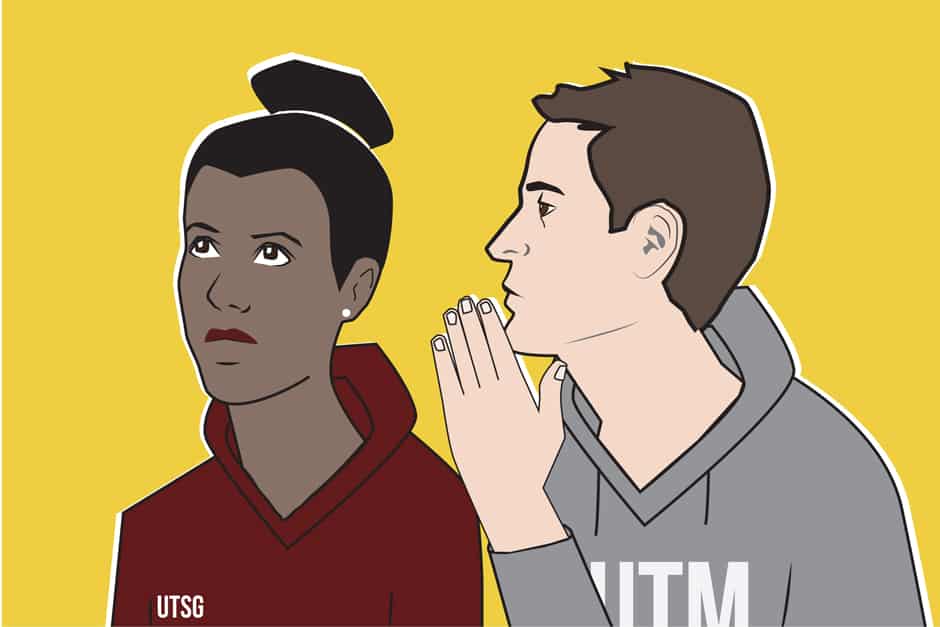Despite efforts by representatives of the University of Toronto Students’ Union (UTSU), misinformation and bewilderment about the motions on the table at the upcoming Annual General Meeting (AGM) continue to pervade campus.
Confusion has centred on the nature of the motion to establish new articles of continuance for the UTSU. In light of the change in legislation under which the union is incorporated, articles of continuance are necessary for the union to exist as a legal entity and must be submitted by an established October 15, 2015 deadline.
With the articles of continuance, the UTSU is also looking into potential alternative organizational structures. Bylaw amendments appear as a single motion on the AGM’s order of business, with the controversial proposal for the new structure of the Board of Directors chief among them.
Some student leaders and groups have raised concerns that several UTSU representatives allegedlycirculated information suggesting that the current motion is the only option for developing a legally compliant board structure.
One course union executive, who requested to remain anonymous, allegedly received text messages in which a UTSU representative appears to claim that certain student organizations could cease to exist, or have their funding cut, if bylaw amendments do not pass.
Contrary to the alleged misinformation, the survival of the union does not ride solely on a “yes” vote to this particular motion at the AGM. Rather, the union would have to try to pass the same or a different board structure at a meeting later this academic year.
“At [the AGM], UTSU must adopt bylaw changes to be compliant with the Canada Not-for-Profit Corporations Act, and if it does not it risks losing its status as an incorporated entity,” reads a post on the University of Toronto Mississauga Muslim Students’ Association (UTM MSA) Facebook page.
Commenting on that post, Zach Morgenstern, UTSU director for Victoria College, attempted to dispel some of the notions that were communicated to students. “I just wanted to confirm, that if the board structure motion fails (which is quite possible), it will be possible to organize another general meeting in the next 365 days to address the problem, so there’s no need to panic about UTSU collapse right away,” Morgenstern wrote.
Similarly, a post on the OUT@UTM Facebook page suggests that the consequences for voting “no” to the motion is a step towards dissolution of the UTSU. “On October 29 there will be an AGM by UTSU about a motion. It’s a pretty long story, but what I’d like to point out is that there is also a possibility that UTSU may be disbanded,” reads the post.
While it is correct that the bylaw changes must take place, some argue that it is misleading to suggest that passing the current proposal at the AGM is singularly decisive in its stakes for the union’s survival.
The UTSU has attempted to keep students abreast of the motions being voted on at the AGM. Both UTM MSA and OUT@UTM commented that they received their information from the University of Toronto Mississauga Students’ Union (UTMSU).
“In the case where those bylaw changes are not adopted and the motion fails, UTSU will have to organize another meeting to discuss the issue and make any amendments within a year or else it will lose its status as a registered organization,” said Bilal Rifai, senior advisor of the UTM MSA and a member of the UTMSU Board of Directors, adding: “I don’t see anything wrong with what we posted.”
Yolen Bollo-Kamara, UTSU president, communicated the urgency of passing compliant bylaws at the AGM, but was careful to note that the union’s survival does not rest solely on a “yes” vote to this particular motion.
“If the proposal is not adopted at the meeting, we will have just under a year in which to pass a Board structure that is compliant,” reads an official statement by the UTSU.
The statement was written by Bollo-Kamara following a meeting of the executive committee.


